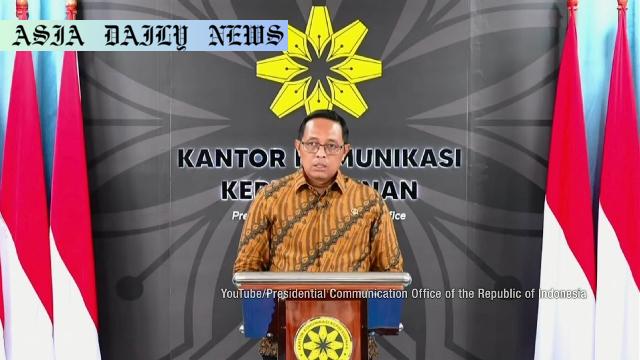Tariff: A major agreement between Indonesia and the USA has led to a reduced 19% levy on Indonesian exports, marking a significant milestone.
- Indonesia finalizes a 19% tariff agreement with the USA after extensive negotiation.
- The Southeast Asian nation commits to $15 billion in US energy purchases.
- US President Trump announces tariff-free US exports to Indonesia.

Reducing Tariffs: A Milestone Agreement
Indonesia has achieved a significant milestone in its trade journey with the United States by securing a reduction to a 19% tariff on its exports, down from the previously threatened 32%. This agreement, reached after arduous negotiations, is a pivotal step forward in fostering stronger economic ties between the two nations. The discussions, described as an “extraordinary struggle” by Indonesian representatives, highlight the importance of mutual cooperation in the global economy.
President Prabowo Subianto expressed optimism following his conversation with US President Donald Trump. The leaders agreed to advance their trade relations into what was described as “a new era,” signaling a commitment to economic collaboration and fresh opportunities for growth. A spokesperson for Indonesia emphasized that the agreed-upon rates are favorable compared to others in the region, suggesting a potential competitive advantage for the country.
A Broad Economic Exchange
In addition to tariff reductions, Indonesia has pledged to bolster its economic partnership with the United States by committing to significant purchases. These include $15 billion worth of US energy, $4.5 billion in agricultural products, and 50 Boeing passenger planes. These commitments underline Indonesia’s strategic intent to strengthen ties with the US while proving itself as a reliable trade partner. The agreement also ensures a reduction of potential trade barriers, as President Trump announced that US exports to Indonesia would now be free of tariff and non-tariff barriers for the first time.
Such measures signify more than just numbers; they represent a mutual acknowledgment of each other’s economic importance. By purchasing energy and agricultural goods, Indonesia not only speeds up its industrialization process but also helps foster a mutually beneficial trade ecosystem between itself and the United States. This development marks a possible turning point, setting an example for similar bilateral trade agreements in the region.
Impact on the Global Economic Landscape
This agreement not only strengthens US-Indonesia trade relations but also has broader implications for the global economy. For Indonesia, the reduction in tariffs could lead to enhanced export competitiveness in the US market, providing a stimulus for local industries. Furthermore, the US gaining access to the Indonesian market fosters a platform for greater cooperation in sectors ranging from technology to infrastructure development. Such collaborative efforts are bound to create ripple effects that influence regional and global trade policies positively.
Moreover, this deal serves as a template for other emerging economies looking to recalibrate their trade relationships with global superpowers. It offers insights into diplomatic negotiations, showcasing the importance of compromise and long-term collaboration for national and economic advancement. With Indonesia positioning itself as a key player in Southeast Asia, this deal underscores its growing relevance on the global stage.



Commentary
The Significance of the US-Indonesia Agreement
The recently concluded tariff agreement between Indonesia and the United States marks a crucial turning point in their bilateral relations. The reduction to a 19% tariff on Indonesian exports is not merely a numerical adjustment; it represents the culmination of extensive negotiations and the shared goal of fostering stronger economic ties. For Indonesia, this agreement is more than a victory in reducing trade barriers—it is an affirmation of its growing clout in the global economic arena.
Similarly, for the United States, this development underscores its commitment to establishing equal trade practices with emerging economies. By eliminating tariff and non-tariff barriers on its exports, the US is not only securing market access but also facilitating smoother business transactions. These measures will likely encourage more American businesses to explore opportunities in Indonesia, thereby boosting economic activity on both sides.
A Model Worth Emulating
What makes this agreement stand out is its holistic nature; it goes beyond mere tariff reductions. With Indonesia committing billions in US energy, agricultural products, and aviation, the strategy is multi-faceted and forward-looking. This level of cooperation showcases that trade can be mutually advantageous when nations prioritize partnership over protectionism. Emerging economies should take note of the strategic nature of Indonesia’s approach to ensure sustainable trade relations without compromising national interests.
Moving forward, this deal could pave the way for larger economic alignments between Southeast Asia and the United States. The implications extend far beyond the trade figures, as such agreements contribute to a more balanced global economic structure. In an era where geopolitical tensions often overshadow collaboration, this bilateral success offers a glimmer of hope.